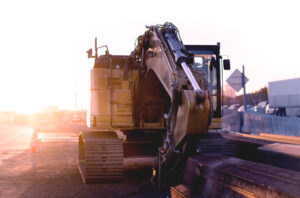If you’ve suffered an injury as a construction worker, you may have questions about what your options are for recourse. The general legal principle in a workplace injury case is that you cannot sue your employer for your injuries. The same principle holds even when your employer was negligent or did not follow OSHA regulations.
However, the state of Texas does not require private employers to offer workers’ compensation to employees. In some circumstances, you may be able to file a third-party claim or a construction accident lawsuit against your employer. Thus, it’s wise to speak to a lawyer experienced in handling negligence in construction cases to identify all possible options for financial recovery.
Workers’ Compensation vs. Third-Party Claims
One benefit to filing a workers’ compensation claim is that the insurance company does not ask who was at fault for the accident. As long as you were on the job at the time of the injury or your damages related to your job, you can receive benefits. Limited exceptions, such as intentional misconduct, will disqualify you from benefits. Nonetheless, these exceptions are rare.
Workers Compensation Benefits
In a workers’ compensation claim, you only receive payment for:
- The cost of your medical care that is associated with your injury
- A portion of your lost wages for a set period (or permanent disability benefits)
- Death benefits when a family member dies
Third-Party Claims
Often, your workers’ compensation payments or a fraction of what you may get in a personal injury lawsuit. While workers’ compensation may cover your medical expenses and a portion of your lost income, it will not include:
- The total lost wages that you will have earned for the rest of your career.
- Non-economic damages to compensate you for your intangible costs related to the injury. (These can include pain and suffering, loss of enjoyment of life, and embarrassment and humiliation.)
When applicable, you can potentially recover much more through a negligence-based lawsuit or a personal injury claim. The scope of your financial compensation is much more significant when you win a lawsuit or receive a settlement.
Negligence in Construction Cases: Who Pays?
The first thing your lawyer will do is perform a full investigation of your construction accident to see if you can sue anyone else. Even though you cannot file a personal injury lawsuit against your employer, you can file a case against a third party that is not your employer.
Numerous other parties are either present at a construction site or have a role to play there. Construction sites are often sprawling areas that have people from numerous companies working. There are also large amounts of equipment that the workers rely on to get the job done. There are countless things that can go wrong, and therefore various parties involved could share liability for a serious accident.
 Third Parties Who May Be Negligent for a Construction Site Accident
Third Parties Who May Be Negligent for a Construction Site Accident
Occupational safety hazards abound in construction jobs. Those who fail to take the necessary safety precautions are legally responsible for the consequences. When a third party is responsible for your injuries, you can sue them in a negligence-based lawsuit. Below are some third parties you could potentially hold liable in a third-party claim or lawsuit.
Equipment Manufacturers
Some of the most common third-party lawsuits resulting from construction accidents are product liability cases against companies that made the equipment that the injured worker used. The equipment may have malfunctioned and caused an injury.
Common accidents involving faulty equipment include:
- Forklift accidents, hoist accidents, and machinery accidents can occur when a design flaw or a manufacturing defect causes them not to function as intended.
- You suffer a severe laceration or amputation because the safety guard comes off a power tool.
- Cranes can malfunction, causing falling debris to strike someone.
- Forklifts can improperly grip their payload, causing it to slip off.
The company that manufactured or sold the work equipment can be liable in a product liability lawsuit. To recover compensation, your lawyer must prove that the equipment was defective. A defendant can be strictly liable due to:
- Design defects where the design of the equipment is unreasonably dangerous (and some courts require that you show that there was a safer alternative design).
- Manufacturing defects, where there was nothing wrong with a design, but something went wrong in the manufacturing process that made the product unreasonably dangerous for its intended use.
- Marketing defects, where the manufacturer did not give the appropriate safety instructions, or they knew or should have known of a defect and did not warn the public about it.
In addition, you can also win a product liability lawsuit when you show that the manufacturer was negligent in the design or making of the product. It will not matter that you did not personally buy the work equipment from the manufacturer yourself. There are exceptions to requirements of privity that apply in standard product liability cases.
You are a foreseeable product user, and the manufacturer owes you the same duty as they owe to the buyer. Manufacturers know that those at a construction site may also be injured when their products malfunction.
Third-Party Contractors or Subcontractors
The general contractor is only one of the many parties present at the construction site during the job. There may be numerous contractors who are performing various tasks at the site. The general contractor may have hired subcontractors for specific jobs.
Anyone who is not your employer can be sued in a personal injury lawsuit when they were negligent. However, a third party you may be unable to sue is other employees; fellow employees are your employer for purposes of a personal injury lawsuit.
If you suffered an injury as a subcontractor, you can sue the general contractor for your injuries. Your ability to sue the general contractor depends on the facts and circumstances of the situation and how much control they may have had over you.
Many accidents in the construction industry include trench or ground collapses. Your employer may hire other companies to either erect scaffolding or dig trenches. Either the scaffolding can be defective, or the trenching was performed negligently, which will have caused your injuries. You may then have the grounds for a third-party lawsuit.
Parties That Exposed You to Hazardous Substances
Exposure to toxic substances is a real danger in a confined construction space. If your employer was responsible for these substances, you will need to proceed using a workers’ compensation claim. However, third parties cause many job site hazards. This could occur in the gas of gas leaks in a building in which the property owner should have installed a carbon monoxide detector, but didn’t.
Construction employees may get exposed to substances like lead or pollutants in the ground. However, you may not know until years later that you suffered exposure to toxins at the work site that caused an illness. One common delayed-onset illness that employees suffer because of exposure to toxic substances is Parkinson’s Disease. You may face a future challenge when trying to prove the causation of your injury and a third party’s connection to it.
Construction Traffic Accidents
You may have suffered an injury either on the job site or nearby in an accident with a motor vehicle. You might have been riding in your vehicle when you got struck by another vehicle. Alternatively, you may have gotten run over by a work site vehicle driven by someone besides your employer.
Large trucks frequently travel to and from construction sites, delivering supplies and taking away debris. However, not all truck drivers receive adequate training, and many do not exercise the necessary care required of them.
Fires, Explosions, and Electrocutions
Numerous flammable and hazardous substances are on a construction site. Someone may be responsible for carelessly storing or using them. In some cases, these substances may catch fire or cause an explosion. Often, all it takes is a spark from work equipment to set off a fire or explosion.
In other cases, faulty wiring on the job site causes fire or electrocution. You can sue the third party responsible for electric wiring. Construction workers may have suffered electrocution because another contractor failed to survey the site for buried utilities adequately. Alternatively, the utility company may be liable for the electrocution because of their own negligence.
Slip and Fall
Finally, you may have suffered a slip-and-fall injury because a third party did not correctly bury or mark off the wiring on the job site. Contractors frequently subcontract or hire someone else for electrical needs, meaning that there may be a third party responsible.
When you are struggling with serious injuries from construction accidents, the last thing you need is to worry about your financial losses. If workers’ compensation insurance does not cover all of your lost income, or you have extensive pain and suffering, a liable third party should cover these. You should not pay for these losses, and an attorney can advise of your options.
The Negligence Standard Applies to a Third-Party Claim
If you sue a third party for a construction accident, the usual standard of negligence from any personal injury case applies to your lawsuit. You must prove that the third party failed to uphold their duty of care by acting unreasonably under the circumstances.
The exception is if you file a product liability lawsuit and prove that the workplace equipment was defective. In that case, the burden shifts to the defendant to show why they should not be held liable.
Do Not Assume That All You Can Get Is Workers’ Compensation
You should never settle for a workers’ compensation claim without exploring all of your legal options. When you bring your case to an experienced construction accident lawyer, they will review the facts of your case to see if you can pursue compensation from one or more third parties.
An aggressive construction accident lawyer will cast a wide net to consider whether someone else can be liable for your damages. They will have a mental checklist based on their experience, and an attorney also has investigative skills to determine other potentially responsible parties.
Your lawyer will understand how costly construction accident injuries can be, and that workers’ compensation benefits are generally inadequate to cover all your losses. They can determine whether there are any other avenues where you can seek the additional compensation you need.
When to File a Third-Party Claim
You have every reason to explore your legal rights, and you should do this as soon as possible after the accident. The Statute of Limitations means that you’ll need to act quickly; you may need to file a claim even when your attorney is investigating the accident. Your lawyer can assist with all aspects of your legal case, both involving workers’ comp and third-party lawsuits.
Speak to a Construction Accidents Lawyer Today

The legal professionals at Wyatt Law Firm proudly defend the rights of injured victims. We make it our goal to reach a full and fair recovery to the greatest extent possible for workers injured by others’ negligence.
It costs you nothing to speak with a construction accident attorney at a free consultation. Your attorney will never charge you anything upfront, nor will they expect payment if they do not succeed in recovering damages for you. Contact a Wyatt Law Firm construction site accident lawyer today to learn about your options for receiving compensation for your injuries.
